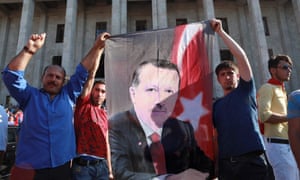Jawed Naqvi in The Dawn
A PEOPLE’S movement is underway in Israel against its ultra right-wing government. Prime Minister Netanyahu is trying to subvert the judiciary’s neutrality, with a selfish aim to kill the criminal cases hanging over his head and that of his colleagues. In quite a few democracies, the judiciary is or has been under assault from the right wing for similar reasons. India is witnessing it in unsubtle ways. Pakistan too has seen political interference with the judiciary at least since the hanging of Bhutto. Then Nawaz Sharif and Gen Musharraf, vicious to each other, took turns to undermine the courts. Pakistan, however, has seen mass movements too that have thrown out military dictators and restored democracy even if intermittently. Where’s that old fire in the belly for India?
Describing the unprecedented attack on India’s democracy starkly at a Cambridge University talk is one thing. Few Indian politicians are capable of speaking with conviction without a teleprompter as Rahul Gandhi recently did before an enlightened audience, while also making plenty of sense. But just as he was holding forth — at a talk called ‘Learning to listen in the 21st century’ — two unrelated landmark events were unfolding in Turkiye and Israel. Was he listening to them too?
The events might send any struggling democratic opposition to the drawing board. In Turkiye, a last-minute collapse of the alliance of six disparate parties, preparing to challenge President Recep Tayyip Erdogan’s re-election in May, holds a lesson for any less-than-solid political alliance about possible ambush on the eve of an assured victory. Equally instructive was the opposition’s ability to bury its differences promptly, something that eludes India. The Turkish groups have made compromises with each other so that their common goal to defeat Erdogan remains paramount. There are good chances they would succeed, but even if they don’t, it won’t be for want of giving their best to restore Turkiye’s secular democracy.
However, it was the coming out of Israel’s air force pilots to join the swarming protests against the Netanyahu government that is truly remarkable, and unprecedented. These pilots are usually adept at bombing vulnerable neighbourhoods, including Palestinian quarters. But their taking a stand in defence of democracy offers a lesson to every country with a strong military. There were rumblings in India once. Jaya Prakash Narayan, the mass leader opposed Indira Gandhi’s authoritarian patch and called for the army and the police to disobey her, an unusual quest but an utterly democratic call when democracy itself is being murdered. The RSS had supported the JP movement. The boot today is on the other foot. Does the Indian opposition have the conviction to follow in JP’s footsteps to take on Prime Minister Narendra Modi? Does it at all feel the dire need to make sacrifices and compromises to rescue and heal the wounded nation?
The Israeli government may or may not succeed in neutralising the supreme court, which it has set out to do. But the masses are out on the streets to act when their nation is in peril. And India cannot exist as a nation without democracy. Secular democracy enshrined in its constitution binds it into a whole.
Rahul Gandhi has evolved as a contender for any challenging job that could help save the Indian republic from its approaching destruction. But he should also have a chat with Prof Amartya Sen perhaps who was quoted recently as saying that Mamata Bannerjee would make a good prime minister. Others have their hats in the ring. Gandhi’s talk in the hallowed portals of Cambridge bonded nicely with his 4,000-kilometre walk recently, from the southern tip of India to what is effectively the garrison area of Jammu and Kashmir. No harm if the walk served as a learning curve for the Gandhi scion, but even better if it were a precursor for a mass upsurge as is happening elsewhere, and which has seen successful outcomes in many Latin American and African states.
Rahul Gandhi spoke about the surveillance, which opposition politicians and journalists among others have been illegally put under. His points about deep-seated corruption, that shows up graphically as crony capitalism, are all well taken. Few can match the feat of mass contact across the country that he displayed recently and his declamation at the world’s premier university. The point is that Cambridge University cannot change the oppressive government in India. Only the Indian opposition can. Rahul Gandhi has the credentials to weld mutually suspicious opposition parties into a force to usher in the needed change.
There’s no dearth of issues to unite the people and the parties. To cite one, call out the BJP-backed ruling alliances in north-eastern states where its supporters assert their right to eat beef. And place it along the two Muslim boys incinerated in a jeep near Delhi by alleged cow vigilantes. The criminality and the hypocrisy of it.
The fascist assault on India’s judiciary is an issue waiting to be taken up for nationwide mobilisation. The assault comes at a time when the new chief justice is one with a mind of his own. Judges have stopped accepting official briefs in sealed envelopes as had become the practice, dodging public scrutiny, say, in the controversial warplanes deal with France. The court has set up a probe into the Adani affair, something unthinkable until recently.
The timing of the vicious criticism of the judiciary is noteworthy. The law minister described the judges as unelected individuals, perhaps implying they were answerable to the elected parliament like any other bureaucrat. This is mischievous. The supreme court set new transparent principles in the appointment of election commissioners. It’s a rap on the knuckles of an unholy system. Could anyone call it a fair election in a secular democracy when people are nefariously polarised and the election commission looks the other way? The questions are best answered by opposition parties, preferably in unison.
India’s rupee and Turkey’s lira both crashed to record lows on Thursday following the US Federal Reserve releasing minutes which signalled a wind-down of quantitative easing as soon as next month.
Dilma Rousseff, Brazil’s president, held an emergency meeting on Thursday with her top economic officials to halt the real’s slide after it hit a five-year low against the dollar. The central bank chief, Alexandre Tombini, cancelled his trip to the Fed’s Jackson Hole conclave in order “to monitor market activity” amid reports Brazil is preparing direct intervention to stem capital flight.
The country has so far relied on futures contracts to defend the real – disguising the erosion of Brazil’s $374bn reserves – but this has failed to deter speculators. “They are moving currency intervention off balance sheet, but the net position is deteriorating all the time,” said Danske Bank’s Lars Christensen.
A string of countries have been burning foreign reserves to defend exchange rates, with holdings down 8pc in Ecuador, 6pc in Kazakhstan and Kuwait, and 5.5pc in Indonesia in July alone. Turkey’s reserves have dropped 15pc this year.
“Emerging markets are in the eye of the storm,” said Stephen Jen at SLJ Macro Partners. “Their currencies are in grave danger. These things always overshoot.”
It was Fed tightening and a rising dollar that set off Latin America’s crisis in the early 1980s and East Asia’s crisis in the mid-1990s. Both episodes were contained, though not easily.
Emerging markets have stronger shock absorbers today and largely borrow in their own currencies, making them less vulnerable to a dollar squeeze. However, they now make up half the world economy and are big enough to set off a crisis in the West.
Fears of Fed tightening have pushed borrowing costs worldwide to levels that could threaten global recovery. Yields on 10-year bonds jumped 47 basis points to 12.29pc in Brazil on Thursday, 33 points to 9.72pc in Turkey, and 12 points to 8.4pc in South Africa.
There had been hopes that the Fed might delay its tapering of bond purchases, chastened by the jump in long-term rates in the US itself. Ten-year US yields – the world’s benchmark price of money – have soared from 1.6pc to 2.9pc since early May.
Hans Redeker from Morgan Stanley said a “negative feedback loop” is taking hold as emerging markets are forced to impose austerity and sell reserves to shore up their currencies, the exact opposite of what happened over the past decade as they built up a vast war chest of US and European bonds.
The effect of the reserve build-up by China and others was to compress global bond yields, leading to property bubbles and equity booms in the West. The reversal of this process could be painful.
“China sold $20bn of US Treasuries in June and others are doing the same thing. We think this is driving up US yields, and German yields are rising even faster,” said Mr Redeker. “This has major implications for the world. The US may be strong to enough to withstand higher rates, but we are not sure about Europe. Our worry is that a sell-off in reserves may push rates to levels that are unjustified for the global economy as a whole, if it has not happened already.”
Sovereign bond strategist Nicolas Spiro said India is “caught between the Scylla of faltering growth and the Charybdis of currency depreciation” as hostile markets start to pick off any country with a large current account deficit. He said India’s central bank is playing with fire by reversing its tightening measures to fend off recession. It has instead set off a full-blown currency crisis that is crippling for companies with dollar debts.
India is not alone. A string of countries across the world are grappling with variants of the same problem, forced to pick their poison.






